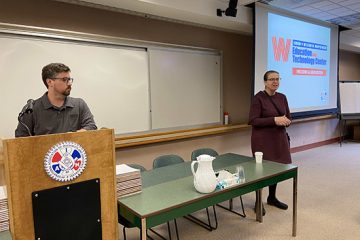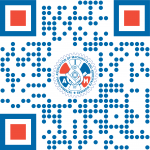DOWNLOAD THE PDF
FEDERAL RIGHT TO REFUSE DANGEROUS WORK
{Canada Labour Code, s. 122, 128, 129, 146, 147}
HEALTH AND SAFETY FACT SHEET
Danger is defined in the Code as any hazard, condition or activity that could reasonably be expected to be an imminent or serious threat to the life or health of a person exposed to it before the hazard or condition can be corrected or the activity altered. {s.122}(1)}
It is essential, for workers and other workplace parties to follow the work refusal steps outlined in Section 128 of the Code (or the Collective Agreement)
As a worker: You have the right to know about any potential hazards in your workplace and the duty to inform your supervisor about any workplace hazard of which you are aware;
You have the right to participate through your joint health and safety committee or health and safety representative in the process of identifying hazards and recommending measures to eliminate or prevent hazardous exposures;
Any worker subject to Part II of the Canada Labour Code (the Code) has the right to refuse dangerous work as long as they have reasonable cause to believe that it presents a danger to themselves or another worker.
There are restrictions on the right to refuse work for some workers. {s.128 (2-5)}
Workers may not refuse to use or operate a machine or thing, to work in a place or to perform an activity if:
The refusal directly endangers the life, health or safety of another person, or the danger is a normal condition of employment {s. 128(2)}
Disciplinary Action
No reprisals
It is against the law for employers to dismiss, suspend, layoff or demote, impose a financial or other penalty, discipline or threaten any worker for performing their rights or duties under the Code. [s.147]
Reporting a refusal {s. 128(6-7}
The refusing worker immediately notifies the employer. If refusal language exists in a collective agreement, the worker must inform the employer whether they are refusing under the agreement or the Code.
The language in the agreement must provide protections to workers that meet or exceed the minimums provided by the Code.
Investigating a refusal [s. 128(7.1&8)]
Employer investigates immediately in the presence of the refusing worker and must prepare a written report. If the employer takes immediate action to protect workers, they must inform the workplace committee or worker health and safety representative. If resolved, refusing worker returns to work.
Continued refusal internal investigation [s. 128(9-14)]
If not resolved and the worker still has reasonable cause to believe work poses a danger, they must again report the circumstances to the employer and a worker member of the workplace committee or representative. One worker and one employer member of the workplace committee or representative must then investigate the matter in the presence of the refusing employee and submit a written report, including recommendations, to the employer.
After receiving the report, the employer may provide additional information and ask them to reconsider their report. They can then choose to revise and resubmit the report. If the employer agrees a danger exists, the employer must take immediate action to protect workers. If resolved, refusing worker returns to work. The employer must inform the workplace committee or worker representative of the actions taken to resolve the matter. If the employer believes no danger exists or the worker cannot refuse work because the refusal will directly endanger the life, health or safety of another worker or the danger is a normal condition of employment, they must inform the worker in writing.
Continued refusal Minister of Labour notified [s. 128(15&16)]
If the worker continues to refuse, the employer immediately notifies the Minister and the workplace committee or worker representative. The employer must provide the reports on the matter to the Minister. The employer may assign the worker to reasonable alternative work. The employer cannot assign the refused work to another worker unless they are qualified, advised of the work refusal/reasons and the employer is satisfied it will not place the new worker in danger. [s.129 (5)]
Minister involvement [s. 129(1-7)]
The Minister or a designate which is expected, in many cases, to be a health & safety officer can decide no investigation is required when they are of the opinion that the matter is one that could more appropriately be dealt with, initially or completely, by means of a procedure provided for under Part I or III of the Code or under another Act of Parliament; the matter is trivial, frivolous or vexatious; or the continued refusal by the worker under s.128(15) is in bad faith.[s.129(1)]. The Minister shall inform the employer and worker in writing as soon as feasible and the worker must return to work. The employer must then inform the workplace committee members or the representatives of the worker and employer designated under section 128(10) in writing of this decision. If an investigation is undertaken, it must be done in the presence of the employer, worker and worker member of the workplace committee or representative. The Minister provides a written decision immediately to the employer and worker calling for the worker to either return to work or with direction to the employer to take actions to protect workers. If directions are issued to the employer the worker can continue to refuse work until the directions are complied with.
LINKS TO PREFERRED HEALTH & SAFETY “TRAINING PROVIDERS”
| British Columbia | BC Fed. Health and Safety Centre www.healthandsafetybc.ca |
| Alberta | Workers Health Centre www.workershealthcentre.ca |
| Saskatchewan | Worksafe Saskatchewan www.worksafesask.ca |
|
Manitoba |
SAFE Workers of Tomorrow www.workersoftomorrow.com |
| Ontario | Workers Health and Safety Centre www.whsc.on.ca |
| Quebec | Quebec Machinist Council www.aimtacmq.ca |
| New Brunswick | Canadian Labour Congress canadianlabour.ca |
| Nova Scotia | Canadian Labour Congress canadianlabour.ca |
| Newfoundland and Labrador | Newfoundland Safety Council www.safetyservicesnl.ca |
| Prince Edward Island | Canadian Labour Congress canadianlabour.ca |
For more information:
Derek Ferguson, GLR, IAM Canada
Tel: (416) 386-1789
Email: dferguson@iamaw.org
Web: http://www.iamaw.ca
———————-
This article was originally posted on the IAM Canada website. View the original post here: Federal Right to Refuse Dangerous Work


